How Much You Need To Study For The ACT
As I tell my students, the ACT is a marathon, not a sprint. It is an exam that rewards hard work and preparation. So, it’s great you’re thinking about how much studying you need to do for the ACT—it means you’re taking the test seriously, and are prepared to do the work needed to succeed.
Effective ACT prep requires study over the course of 3-4, or, ideally, 5-6 months, with time set aside for daily work, and the completion of lots of practice tests.
For more help on the actual ACT itself, check out our ACT prep course. I’ve outlined some things to incorporate and consider below:
[act_one]
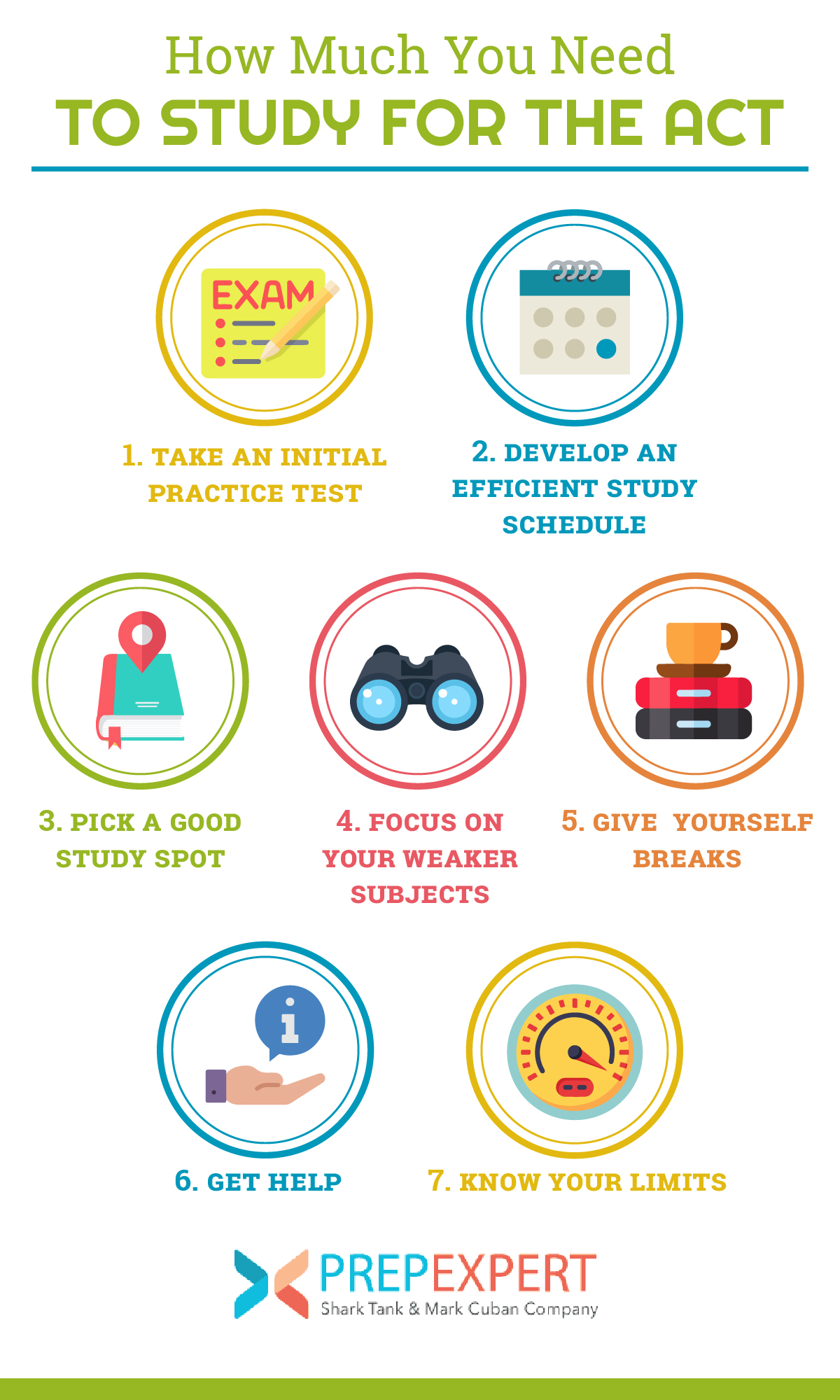
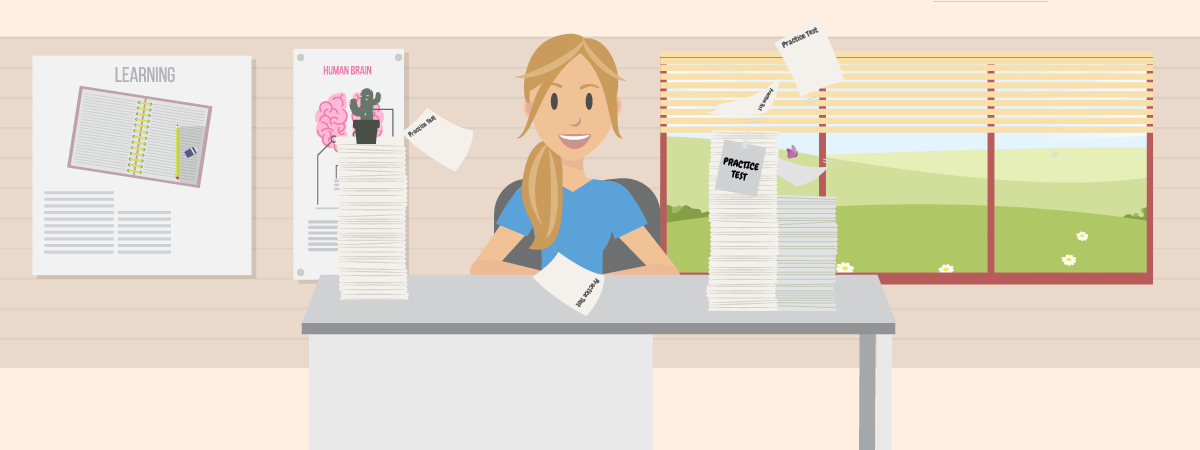
Take An Initial Practice Test
Taking an initial practice test under test-day conditions will show you which areas you need to improve on and help you develop a study plan.
You should complete an initial practice test under test-day conditions—that is, timed, and in a quiet place free of distractions. After completing the practice test, analyze it, taking a look at the types of questions you’re getting wrong.
There’s usually a pattern there—and note the subject areas where you need improvement. This analysis will help you prioritize your study time when getting started.

Develop An Efficient Study Schedule
Plan to study for two hours each day, every day of the week leading up to your test. Readjust your schedule if necessary.
You should aim to study for the ACT every day over the course of a few months, in addition to weekly timed practice tests. Make studying for the ACT a top priority, right after family and schoolwork.
[leadmagnet_five]
There’s a good chance your schedule might be filled up with other commitments, too, like extracurricular activities, sports, and the like. If you’re finding it hard to fit studying for the ACT into your schedule, you might have to put some of these things on hold for the time being.
Soul Cycle class eating up your Saturday? Take a break for now. Intramural basketball taking up your afternoons three days a week? Hang up your jersey. Remember, studying for the ACT is important for your future, and you only have to do it for a relatively short time period. When you’re done, you can pick these other things back up.
Ideally, you should aim to study for the ACT for a couple of hours every day, with an occasional long weekend session for a full, timed practice test. Plus, it’s best if you study at the same time every day. Your study time is then easy to remember, and you come to it mentally prepared to tackle the day’s work.
Do your best to fit in as much studying as possible. If you truly can only do one hour a day, or only four days a week, then commit to that. Just remember, the more practice you do, the better score you’ll get—the ACT is an exam that rewards hard work.

Pick A Good Study Spot
Make sure you do your studying somewhere you can focus: a quiet place free of distractions.
It’s important that you don’t study in your bedroom, which is full of tempting distractions. Distractions include your bed, TV, and computer. Don’t study in your kitchen, either. Why? Because it’s likely to be full of action, with Mom coming in and out asking you lots of questions, siblings raiding the fridge, or maybe a dog or cat or two sniffing at your side.
At home, your dining room or a study can be good places to work. If you go outside your home, don’t work at a coffee shop, as it’s likely to be filled with even more distractions than your home. The library is always a good place to study, and you can also look into using an empty classroom after school is out.
Really, anywhere that fits these two criteria—quiet and free of distractions—is an acceptable study spot, so you shouldn’t have too much trouble finding a place.
[act_two]

Focus On Your Weaker Subjects
Devote more study time to the subjects you’re struggling with.
With the completion of more and more practice tests, you’ll start noticing your problem areas. You should start devoting more study time to these areas. Always misplacing commas? Go back and re-learn the rules of grammar.
Triangles proving difficult? Crack open your old Math book and review the different types of triangles, the Pythagorean Theorem, and SOH CAH TOA. Not finishing the Reading test on time? Practice skimming the passages. Having a hard time locating information on the Science test? Practice using keywords to find what you need.
[leadmagnet_two]
Keep drilling these areas again and again until the mistakes you’re making start disappearing. If your score starts to plateau, that means it’s either time to change up your strategies or do more focused foundation work on the academic topics you’re struggling with.

Try Giving Yourself Breaks
Taking regular breaks during your study time will help you focus better on your work, which can improve your final test score.
I always recommend taking breaks during study time. For every hour of work you do, give yourself a ten-minute break. This break allows you to get something to eat, use the restroom, check your social media, or go outside and get some fresh air. Knowing that you have a break not too far ahead will allow you to focus more while studying.
You won’t be able to take ten-minute breaks every hour when you’re doing full practice tests, however. When taking practice tests, follow the break schedule you’ll have on test day. Check out the ACT website for a breakdown of when you can take breaks, and for how long.

Having Trouble On Your Own? Get Help!
If you’re finding your study time ineffective, you might want to enlist the service of a tutor or a test prep course.
Prep Expert® offers year-round classes, every day of the week, either in-person in cities across the country, or online. Our online classes can be viewed On Demand, so if you miss the live session, you can watch later and catch up.
What’s more, Prep Expert® also has a cadre of brilliant tutors, all of whom have scored a perfect 36 on the ACT themselves, to work with you one-on-one, also either in-person or online. Working with Prep Expert® will not only give you the strategies you need to succeed on the ACT, but it will also help you catch up on all those subject areas you’re having trouble with.
Sweating geometry? Your tutor can help you re-learn the rules of those triangles and help you tackle geometry problems like a pro. Have trouble with transitions? Your tutor will reacquaint you with their uses, and give you an arsenal of transition words to use in the Essay.
Prep Expert® has helped thousands of students improve their scores substantially, and can help you, too. Check out the Prep Expert® website for in-person and online class schedules, or give us a call to set up sessions with a private tutor.
There’s no shame in asking for a little help—the ACT isn’t an easy test, and sometimes a little guidance is exactly what you need to wrap your mind around your weaknesses and boost your score.
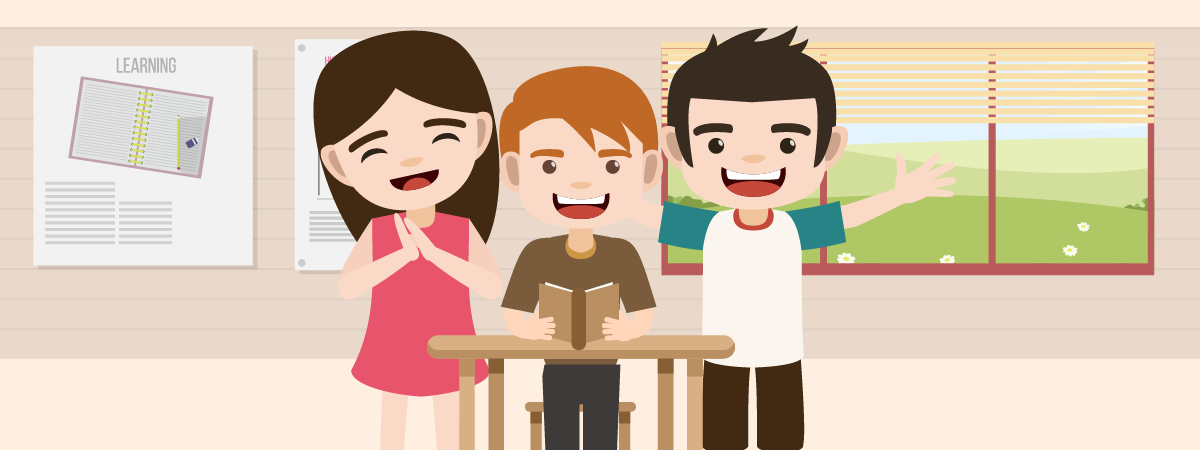
Did You Get The Score You’re Aiming For? Well, Then You’re Done.
You can stop once you’ve hit your target score that you’ve been working so hard for.
Not everyone has to achieve a 36 on the ACT to be successful. Most students have a target score they’re aiming for—either the score they need for their dream school, or for a scholarship program to which they’re applying. Others might have a score in mind that will balance well with their GPA on college applications.
So, while reaching your target score might motivate you to do even more work, it’s perfectly acceptable to stop there, pat yourself on the back for all your hard study, and put those ACT books away. Now you can put those other things you left by the wayside—Soul Cycle, intramural basketball, et cetera—back on your calendar.
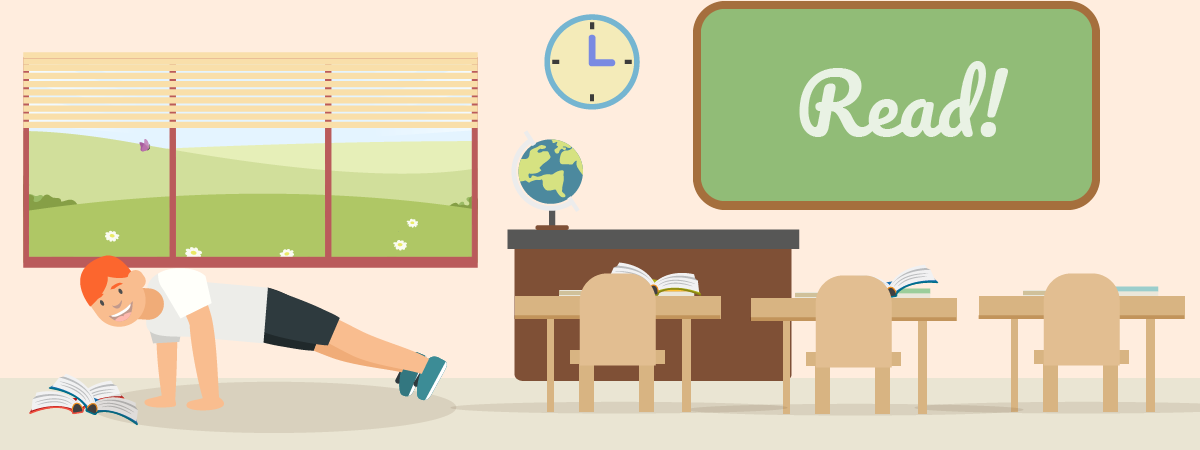
Know Your Limits
Don’t work yourself to the bone if you’ve worked hard and fallen short of your target score.
There’s a fair chance that, even if you commit yourself to study for the ACT on a daily basis, and work really hard at eliminating your weaknesses, you’ll still fall short of your target score. So, if you reach the point where your score has plateaued, you’ve changed up your strategies, and still received the same score, know when to throw in the towel.
In the novel Moby-Dick by Herman Melville, Captain Ahab single-mindedly and maniacally pursues the White Whale at the expense of all else, including his and others’ well-being. While the ACT isn’t nearly as serious as this, take this reference as an admonition not to obsess unrealistically over the ACT at the expense of schoolwork, your family, and other commitments.
Know when to quit it, and congratulate yourself for all the hard work you did getting your score to where it is. If your score isn’t just quite at where you want it to be, then contact Prep Expert® so we can help you fix that!
[act_three]
For more test strategy, college admissions, and scholarship application tips sign up for our FREE class happening right now!
Written by Todd Marcus
More from Todd Marcus

Taking The ACT Junior Year
If you're ambitious and want to give yourself plenty of time for score improvement, then consider taking the ACT junior…
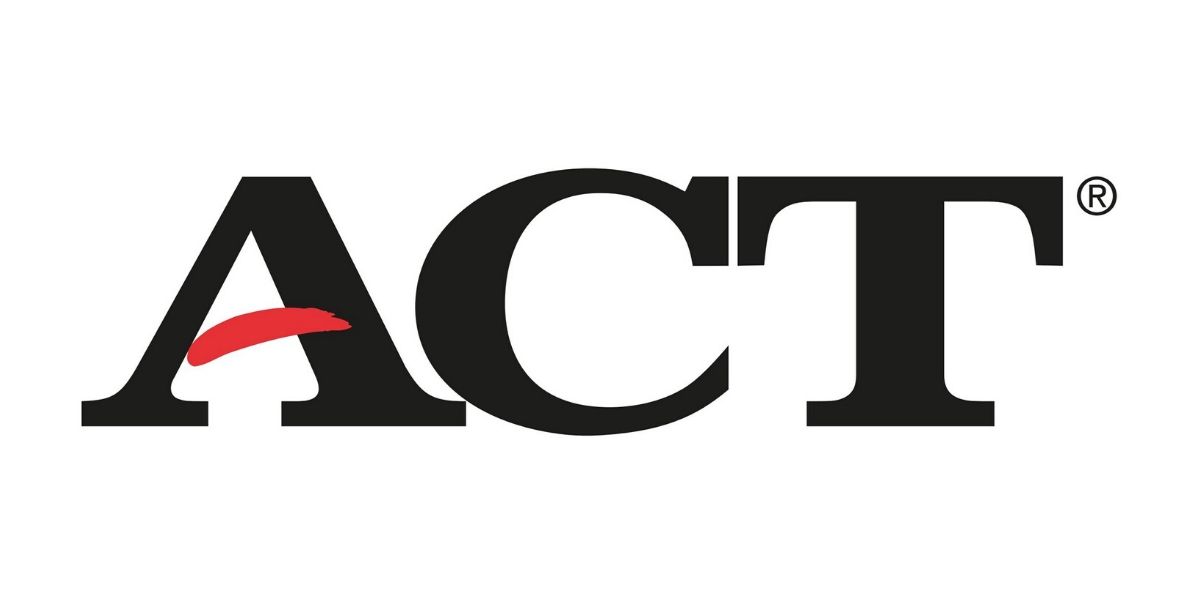
ACT 2020 Score Release Dates
Here then are the ACT 2020 score release dates to plan around, as well as, the different kinds of available…

How To Determine Your Average SAT Study Time
If you want a high score on the SAT, then you need to put in the hours. There's no way…